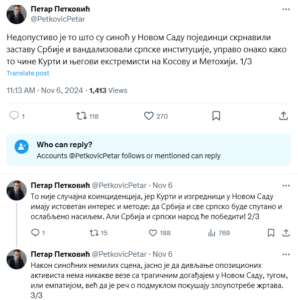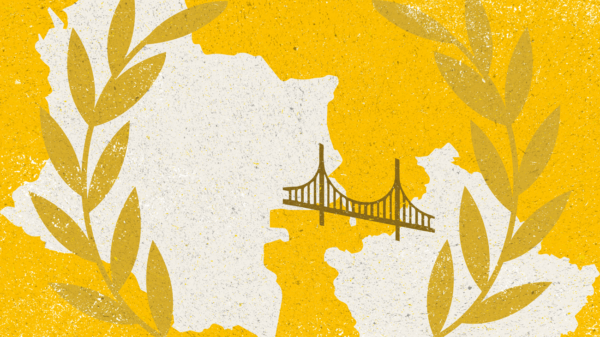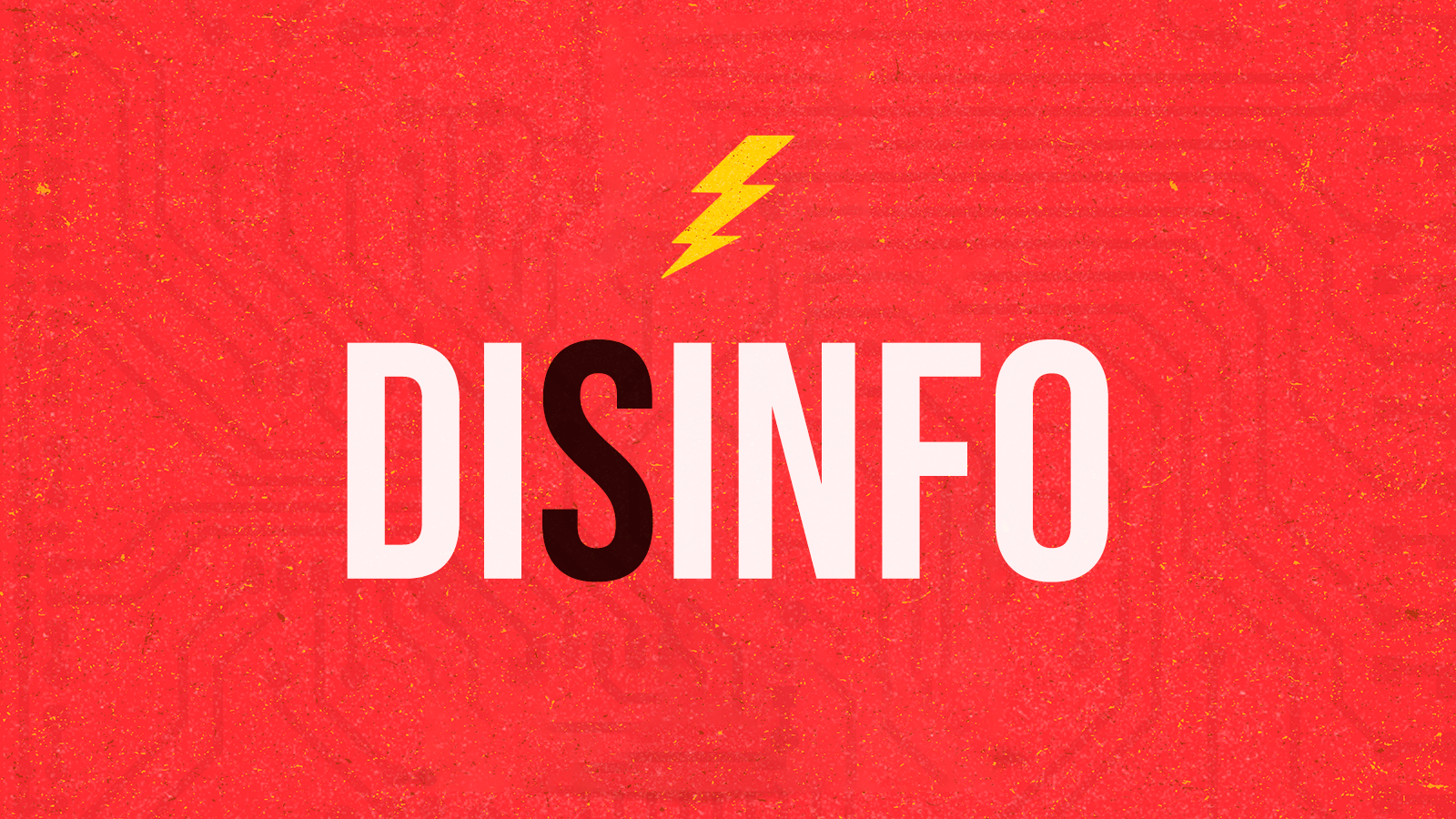The Director of the Office for Kosovo in the Serbian Government, Petar Petkovic, has once again mentioned Kosovo in the recent protests in Novi Sad, without providing evidence that elements from the disputed state played any role in these protests.
On November 1, 2024, a concrete shelter at the Novi Sad train station collapsed, killing 14 people and severely injuring three others. Following this tragic incident, on November 3, a large crowd gathered outside the Ministry of Construction, Transport, and Infrastructure in Belgrade, to protest after the Novi Sad incident. Protesters called for the resignation of Minister Goran Vesic and for the government to take responsibility. The new Novi Sad station was opened in July 2024, following three years of construction work carried out by a Chinese consortium.
On November 5, protesters threw stones and red paint at the Novi Sad municipal assembly building. Additionally, the building’s glass doors were shattered, and a group of masked individuals set off fireworks inside the premises.
High-ranking Serbian officials drew analogies between the actions of the protesters and the decisions of the Kosovo government. Even amid the tragedy that left numerous dead, they reiterated the narrative that Kosovo’s interests align with those of the protesters in Serbia, equating the protesters’ actions with those of the Kosovo government.
On November 6, 2024, the Head of the Office for Kosovo in the Serbian Government, Petar Petkovic, wrote on "X": “It is unacceptable that last night in Novi Sad, individuals desecrated the Serbian flag and vandalized Serbian institutions, just as Kurti and his extremists are doing in Kosovo. This is no coincidence, as Kurti and the rebels in Novi Sad share the same interest and methods: to hinder and weaken Serbia and everything Serbian through violence.”

Serbian media amplified this narrative, giving space to these unfounded claims and thus portraying Kosovo as a destabilizing force aiming to weaken Serbia.
Petkovic’s statement was circulated by outlets such as Novosti.rs, Alo.rs, Euronews.rs, Tanjug.rs, Pink.rs, Objektiv.rs.
This claim by Petkovic is a continuation of statements attempting to implicate Kosovo in developments within Serbia.
Such tactics are frequently employed by Serbian officials and media, often as a means to divert attention from internal issues by placing blame on external factors.
Alongside claims implicating Kosovo and Western agencies in developments in Serbia, accusations and attacks have also been directed at journalists. Serbian propaganda has been highlighted in statements from international organizations dedicated to the protection of journalists and information integrity. According to “Reporters Without Borders,” at least four media teams were attacked while covering the anti-government protests in Novi Sad.
"Right to propaganda replacing the right to information. Perpetrators of attacks against journalists presented as victims. Freedom of the medias’ enemies instead of media freedom. Serbia is the informational weak link of Europe. At my meetings with the authorities in Belgrade, I urged them to take measures against Russian propaganda, abusive lawsuits and the impunity of crimes committed against journalists. Speaking to the international community in Serbia, I pleaded for their support for such action,” is cited in the statement of the head of the EU-Balkans Section of Reporters Without Borders, Pavol Szalai.
This is not the first time Serbian officials and media have attempted to implicate Kosovo in events within Serbia. When environmental associations organized protests in Belgrade following the announcement of a lithium mine project in the Jadar Valley, Serbian officials baselessly claimed that the protests were instigated by Prishtina and other Western agencies.
*This article is published as part of the Western Balkans Regional Initiative against disinformation. “Western Balkans Anti-Disinformation Hub: exposing malign influences through watchdog journalism.”




























































